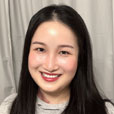View semester dates
2 years part-time

Investigate the cognitive science of language.
Year of entry: 2026 (September)
Psycholinguistics explores the mechanisms that allow people to acquire, produce and comprehend language. This course explores a diverse set of topics.
As a psycholinguistics student, you'll ask questions about areas ranging from language acquisition to language processing. This includes, but is not limited to:
The structure of the programme is very flexible to adapt to your prior background, offering both introductory modules (for conversion students) and specialist advanced modules if you have a background in linguistics and/or psychology.
You'll progress to specialist modules in the second semester. Through this, you'll deepen your subject knowledge while also developing your abilities in dealing with controversial proposals, weighing up the evidence, evaluating the quality of the arguments, and articulating your own conclusions.
In addition, you'll undertake practical training in experimental methods and quantitative methods in psycholinguistics. Finally, in collaboration with our staff, you will design and conduct your own psycholinguistic research for your dissertation, which closes the programme and allows you to apply the concepts and skills acquired during the MSc (including experimental design and statistical analysis).
You'll choose from 3 modules in consultation with the programme leader.
Option modules
You'll choose from 3 modules in consultation with the programme leader. Some option module combinations may not be possible. The options available to you will be confirmed after you begin your course.
The options available to you will be confirmed after you begin your course. For further information, please get in touch.
Our modules may change to reflect the latest academic thinking and expertise of our staff, and in line with Department/School academic planning.
You'll prepare and write a research dissertation over Semester 2 and the vacation supervised by a member of staff. You'll submit your dissertation in September.
Topics have ranged from:
Every course at York is built on a distinctive set of learning outcomes. These will give you a clear understanding of what you will be able to accomplish at the end of the course and help you explain what you can offer employers. Our academics identify the knowledge, skills, and experiences you'll need upon graduation and then design the course to get you there.

I’ve found the staff in the Department to be brilliant. Support staff answer all your questions and lecturers deliver content with genuine enthusiasm that really adds to the experience. Lecturers will adapt their teaching to meet the needs of everyone.
| Study mode | UK (home) | International and EU |
|---|---|---|
| Full-time (1 year) | £12,500 | £27,250 |
| Part-time (2 years) This is the year 1 fee. Fees for future years are subject to confirmation. |
£6,250 | £13,625 |
Students on a Student Visa are not currently permitted to study part-time at York.
For courses which are longer than one year, the tuition fees quoted are for the first year of study.
UK (home) or international fees? The level of fee that you will be asked to pay depends on whether you're classed as a UK (home) or international student. Check your fee status.
Find out more information about tuition fees and how to pay them.
Discover your funding options to help with tuition fees and living costs.
We'll confirm more funding opportunities for students joining us in 2026/27 throughout the year.
If you've successfully completed an undergraduate degree at York you could be eligible for a 10% Masters fee discount.
We are pleased to work with Chevening Scholars to offer funding for our Masters programmes. Chevening Scholarships provide one year of fully-funded postgraduate study in the UK for international (including EU) students. The scholarships are open to early and mid-career professionals who have the potential to become future leaders.
Find out more about funding specific to Language and Linguistic Science.
You’ll work with world‐leading academics who’ll challenge you to think independently and excel in all that you do. Our approach to teaching will provide you with the knowledge, opportunities, and support you need to grow and succeed in a global workplace.
You'll be taught with a mixture of lectures, seminars, workshops and practical training. You'll have approximately three contact hours a week for each module. For some modules you’ll complete collaborative group work outside your classes. You’ll be set essential reading, and will complete weekly assigned exercises.
All modules offer developmental assessments that do not contribute to your final mark. These provide a chance to practice your skills and gain useful feedback on your progress and understanding, before you take the final assessments. A member of the teaching staff will act as your supervisor throughout the degree, to help guide your studies and monitor progress.
All of our modules have Virtual Learning Environment (VLE) websites where all crucial materials—reading lists, handouts, discussion boards—are accessible.
Our e-Lab gives you access to a variety of resources, including specialist linguistics software, corpora of different varieties, and online language-learning materials.
You will be based in the Department of Language and Linguistic Science on Campus West. Most of your contact hours will be in or close to Vanbrugh College, with some additional teaching in other locations on Campus West.
Our beautiful green campus offers a student-friendly setting in which to live and study, within easy reach of the action in the city centre. It's easy to get around campus - everything is within walking or pedalling distance, or you can always use the fast and frequent bus service.
A range of assessment formats are used. You’ll submit exercises or short essays, or take examinations, for your Semester One modules.

Studying psycholinguistics allowed me to explore how language is processed in my mother tongue and second language. This splendid programme provided me with a specialist toolkit to explore the relationship between linguistic behaviour and psychological processes, from theoretical approaches to research techniques. You might encounter some challenges but you will be fully supported by staff.
On successful completion of the MSc in Psycholinguistics programme you will have gained a solid and detailed grounding in psycholinguistics, along with the practical and technical skills to carry out original research in this field, guided by some of the world’s foremost experts. You will develop your confidence, critical skills, problem-solving abilities, and other transferable skills including time-management and communication, equipping you to exercise independent learning in your future career. Our MSc provides excellent training for doctoral research. Graduates are also well-equipped to undertake careers in a range of sectors including marketing, publishing, education, government administration, and journalism.
| Qualification | Typical offer |
|---|---|
| Undergraduate degree | 2:2 or equivalent |
| Other international qualifications | Equivalent qualifications from your country |
If English isn't your first language you may need to provide evidence of your English language ability. We accept the following qualifications:
| Qualification | Minimum requirement |
|---|---|
| IELTS (Academic and Indicator) | 6.5, minimum 6.0 in each component |
| Cambridge CEFR | B2 First: 176, with 169 in each component |
| Oxford ELLT | 7, minimum of 6 in each component |
| Oxford Test of English Advanced | 136, minimum 126 in each component |
| Duolingo | 120, minimum 105 in all other components |
| LanguageCert SELT | B2 with 33/50 in each component |
| LanguageCert Academic | 70 with a minimum of 65 in each component |
| Kaplan Test of English Language | 478-509, with 444-477 in all other components |
| Skills for English | B2: Merit overall, with Pass with Merit in each component |
| PTE Academic | 61, minimum 55 in each component |
| TOEFL | 87, minimum of 21 in each component |
| Trinity ISE III | Merit in all requirements |
For more information see our postgraduate English language requirements.
You may be eligible for one of our pre-sessional English language courses. These courses will provide you with the level of English needed to meet the conditions of your offer.
The length of course you need to take depends on your current English language test scores and how much you need to improve to reach our English language requirements.
After you've accepted your offer to study at York, we'll confirm which pre-sessional course you should apply to via You@York.
Get in touch if you have any questions
If you are new to the field or have only minimal prior background:
If you have considerable prior background:



